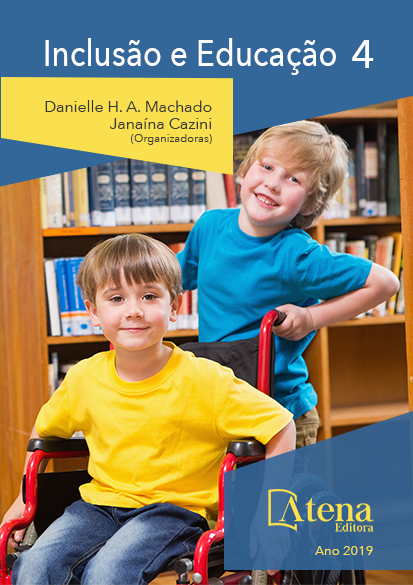
A DISCIPLINA METODOLOGIA DO ENSINO DA MATEMÁTICA III COMO ESPAÇO DE DISCUTIR EDUCAÇÃO MATEMÁTICA INCLUSIVA: um relato de experiência
O seguinte trabalho relata
uma experiência vivenciada na disciplina
Metodologia do Ensino da Matemática III,
numa turma de 7º período da Licenciatura
em Matemática da Universidade Federal de
Pernambuco - Campus Acadêmico do Agreste.
Nesta os discentes participaram de quatro
encontros, no primeiro foi estudado a utilização
de materiais manipuláveis para o ensino de
Matemática, a partir de Lorenzato (2006). No
segundo, os discente estudaram a partir de
Sassaki (2003), Carvalho (2013) e Mantoan
(2006) e da legislação vigente, a Educação
Inclusiva. No terceiro momento, discutiu-se as
produções no campo da Educação Matemática
Inclusiva, a partir de produções disponibilizadas
nos anais do Encontro Nacional de Educação
Matemática, de 1988 a 2016, e nas produções
do Encontro de Pesquisa Educacional de
Pernambuco, 2016, além disto, os alunos foram
desafiados a pensar e confeccionar materiais
didáticos que sejam possivelmente facilitadores
do aprendizado matemática de alunos com
deficiência. No último encontro, os alunos
apresentaram os materiais produzidos, citando
as possibilidades de cada material. Percebemos
assim a disciplina, como um ótimo espaço para
discutir inclusão no ensino de matemática.
A DISCIPLINA METODOLOGIA DO ENSINO DA MATEMÁTICA III COMO ESPAÇO DE DISCUTIR EDUCAÇÃO MATEMÁTICA INCLUSIVA: um relato de experiência
-
DOI: 10.22533/at.ed.3221915011
-
Palavras-chave: Educação Matemática Inclusiva. Materiais Manipuláveis; Formação de Professor.
-
Keywords: Inclusive Mathematics Education. Manipulable Materials. Teacher Training.
-
Abstract:
The following paper reports an
experience lived in the discipline Methodology of
Mathematics Teaching III, in a class of 7th grade
of Mathematics Degree of the Federal University
of Pernambuco - Agreste Academic Campus. In
this the students participated in four meetings, in
the first one was studied the use of manipulable
materials for the teaching of Mathematics, from
Lorenzato (2006). In the second, the students
studied from Sassaki (2003), Carvalho (2013)
and Mantoan (2006) and the current legislation,
Inclusive Education. In the third phase, the
productions in the field of Inclusive Mathematical
Education were discussed, based on productions
made available in the annals of the National
Meeting of Mathematical Education, from 1988
to 2016, and in the productions of the Meeting
of Educational Research of Pernambuco, 2016.
In addition to this, students were challenged
to think and make didactic materials that are
possibly facilitators of the mathematical learning
of students with disabilities. At the last meeting, the students presented the materials
produced, citing the possibilities of each material. We thus perceive discipline as a
great space for discussing inclusion in mathematics teaching.
-
Número de páginas: 15
- José Jefferson da Silva


